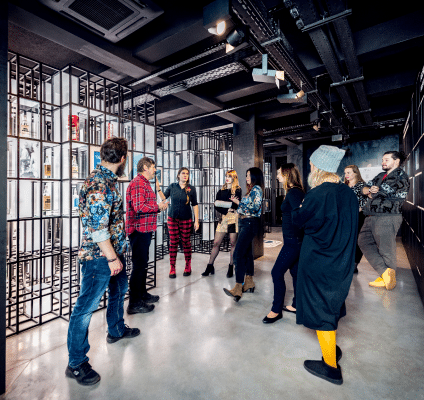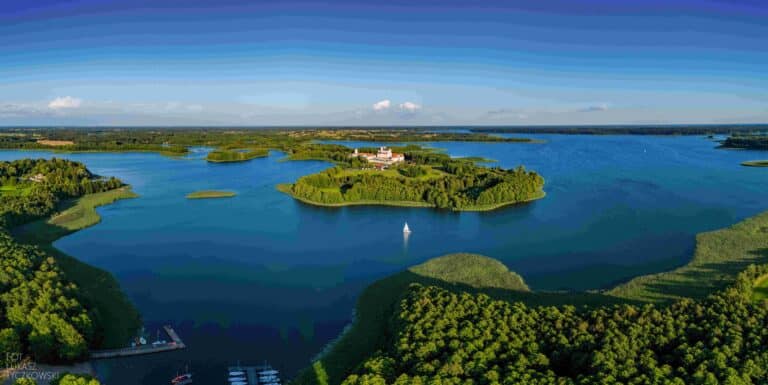From Oz to Central-Europe
Nathaniel England is a 25-year-old Australian lecturer and international security expert. After completing his master’s degree at Collegium Civitas in Warsaw, he was offered the opportunity to teach there. Nathaniel spoke to Poland Weekly about his experience moving to Poland and finding success here.
Could you briefly introduce yourself?
Hi, my name is Nathaniel, I am 25 years old and I’m from Australia. I am currently a lecturer at Collegium Civitas within the faculty of international relations, teaching on the Indo-Pacific. I also recently became one of the authors here at Poland Weekly, writing on international affairs that relate to Poland.
What was behind your journey from Melbourne, one of the most liveable cities in the world, to Warsaw?
It is interesting you mention Melbourne being one of the most livable cities in the world. Leading up to 2020 it definitely was. Then, during the first year of the pandemic, it quickly became quite the opposite. The health restrictions that were put in place, made it an incredibly unpleasant place to live, certainly in comparison to Poland at the time. So you could say, the reason for me coming here like all great stories relating to destiny, involve elements of love and tragedy. Ultimately I figured (at the time) that it would be better for me to be here with my partner, in this part of the world, rather than in Australia.
You have been to universities in Poland both as a student and lecturer. How do you find higher education in the social sciences in Poland?
I am not sure that I can completely generalize my experience to the whole of social science education in Poland. I would say there are definitely some notable differences from my former university, especially when we are talking about Collegium Civitas, which is quite a small non-public university in Poland. The didactic method is slightly different, however, the biggest issue that I’ve noticed relates to the quality of feedback. Something that I’ve been pushing to improve both when I was student and now as a lecturer.
You are an International Security expert, how do you evaluate the effects of Russia’s Ukraine war on Poland?
The impact of the war in Ukraine on Poland has been significant across the spectrum: socially, economically and strategically. As someone who is non-Polish but has been here and seen the tragedy unfold across the border, I have noticed a lot of things in Poland that have changed. Interestingly, the general concern about what Russia is capable of has not been one of them. I would also say that Poland has quickly become one of the most important countries for European security. Belarus is currently demonstrating its antagonism by bringing Wagner fighters near the border of Poland, it was also recently involved in an incursion into Polish airspace. On top of that, Poland maintains the strategic piece of territory that exists between Kaliningrad and Belarus. In the context of Russia’s aggression in Ukraine and the antagonistic elements we are seeing from the Belarusian regime, I would say that Poland – and particularly the northeast region of Poland – is a focal point for European security. Poland is also becoming more significant from a strategic balance of power perspective, as we are seeing significant military modernization and growth to become a much greater regional force, compared to what it was in the past.
You have great experience and expertise at a young age. How has Poland contributed to your personal success?
I would say that Poland has definitely contributed to my personal success. The fact that I was given the opportunity to teach almost directly after graduating is a testament to the opportunity and success I could find here that I probably would not have, if I had been in Australia. The lecturing position has been a major achievement so far during my time in Poland. It has opened up all sorts of new opportunities, including my introduction to Poland Weekly, which I am now publishing regularly for. My experience in Poland has fundamentally changed who I am and where my life is going. On that basis, I would note that because I have a lot of experience from the other side of the world (as a rare Australian in Poland) it means, particularly when it comes to my teaching, I have something quite unique and potentially valuable to offer.
Does Poland meet your interests in your social life? What are your favorite activities to do here?
There are many things that I love to do here in Poland. Because I am living in Warsaw, I would say from a local perspective, there are many great places to go out, eat,.et people, and have a great time. Warsaw has a very good nightlife culture, which I personally appreciate. Also, I find it quite easy to get around in Warsaw with the public transport system. I also don’t mind going to Praga beach in summer, and starting up a barbecue. When it comes to Poland more broadly, I am very fond of going to Krakow, as it’s a beautiful historic city and there are also many interesting things to do there as well. Truthfully though, there’s much of Poland that I still want to explore.
You are in a completely different geography from Australia. Is the climate challenging for you?
Melbourne, being in the southeast region of Australia, can get very hot in summer, but it can also get quite cold later in the year. So the difference in climate is probably not as big of a difference as you might anticipate. Saying that, there was a fair bit of a climate shock, particularly when it comes to winter and the snow. I remember in 2020, around Christmas time that year, it was incredibly cold and I think at one point it reached -17 celsius degrees. For me that was a totally new experience. I had never experienced that kind of freezing temperature or that amount of snow before. Obviously, the natural ecosystems are very different and there are slightly fewer dangerous animals here.
What are the hardest and the easiest parts of Poland for you?
I think the hardest part initially was the language. I would say not knowing Polish was one of the most difficult things at the beginning. I do not claim to speak Polish at this point, but I know at least a little to get myself by, which really helps. Also, I found it particularly difficult driving on the opposite side of the road. In Australia, we drive on the left, so I consider myself quite ambidextrous now, especially whilst driving manual. On the other hand, the cost of living would be considerably easier in Poland when you compare it to the cost of living in a city like Melbourne. Although inflation has increased in recent years, when I first came here, the cost of living seemed to be a lot easier compared to my experience in Australia. Getting between cities by public transport in Poland is also relatively easier, with its quite well developed and interconnected rail transport system.
Has English as your native language made your life in Poland easier?
Despite what I said earlier, I do not have any major issues with communication in Poland. Generally speaking, if you go to any major city, It would be difficult to find someone who doesn’t speak any English. However, it has proven difficult at times if you go to regions outside of the big cities, where it is less common for people to speak English. Thankfully I wasn’t by myself. Therefore, I’d argue that its only very special occasions when having English as a native language could slightly benefit you over someone who speaks it as a second language, when it comes to living in Poland.
Will you continue in Poland or do you have another country in your future plans?
That is a question that is a little difficult to answer right now. I really enjoy living in Poland and it’s hard to imagine anywhere else. I guess I’ll just have to see where life and opportunity takes me.







